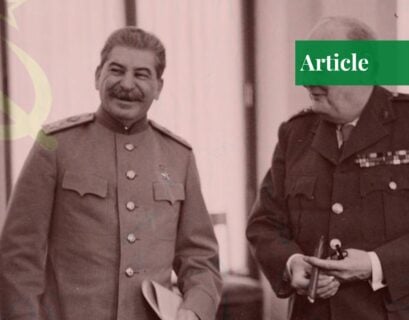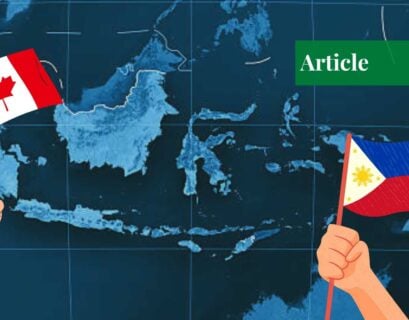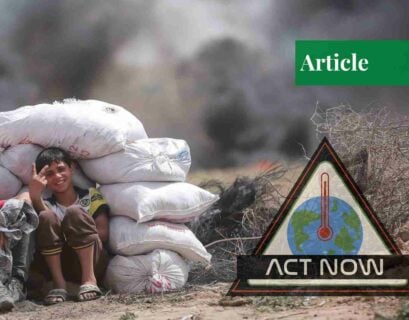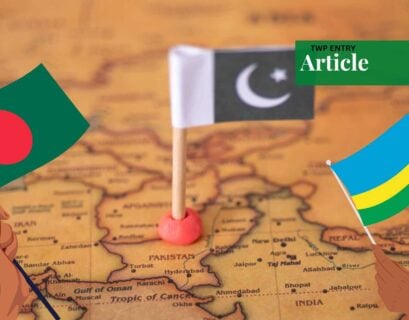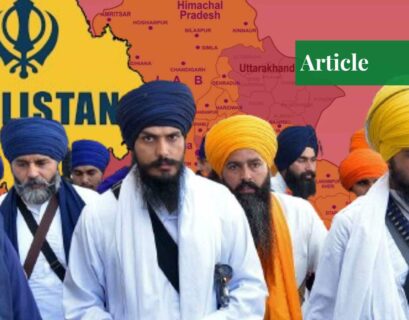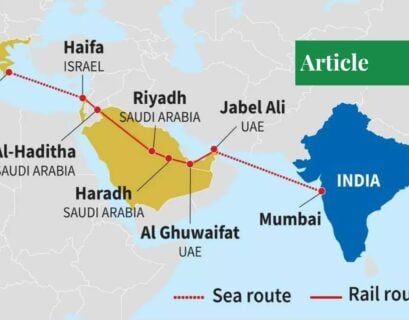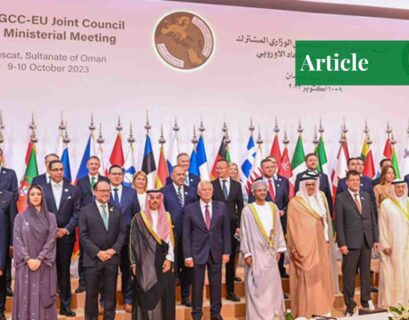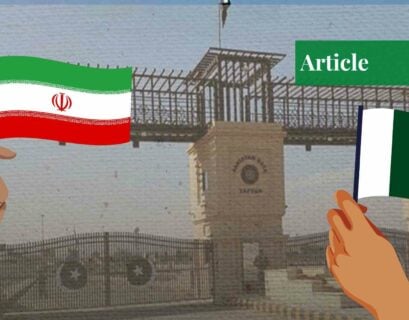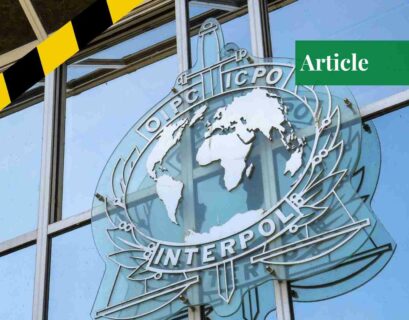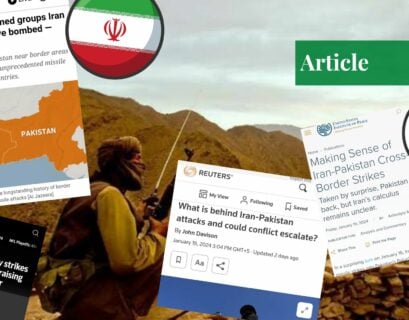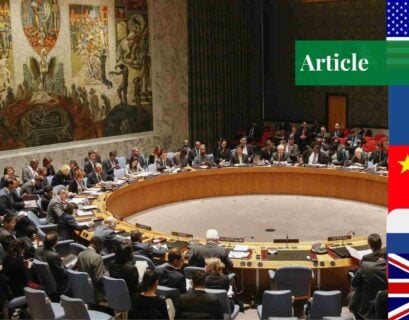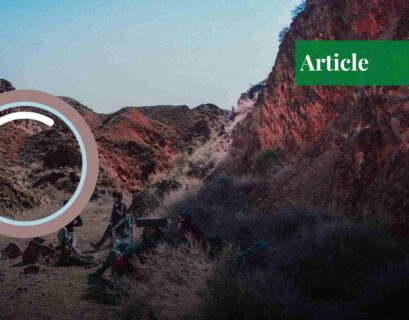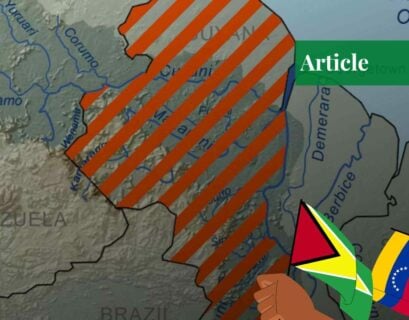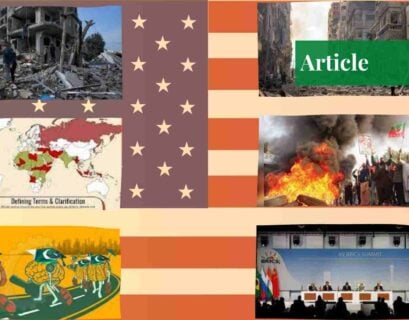The Anglo-Soviet Invasion of Iran
The Anglo-Soviet invasion of Iran officially began on 25th August 1941 and concluded on 31st August 1941, a day after the Iranian government had agreed to surrender and establish a ceasefire.
However, the invasion was more than a mere military operation; it assisted in setting the stage for Iran’s role in global politics along with shifting the perspective of the Iranian government and its populace concerning the West.
Canada-Philippines Defence Agreement and the South China Sea Dispute
The recent defence agreement signed between Canada and the Philippines is focused on cooperation in military education, information sharing, training exchanges, peacekeeping operations, and disaster responses regulated between the military and defence establishment of both countries.
Although it doesn’t mention a direct aim of safeguarding the claims of the Philippines in the South China Sea, the defence agreement would surely play its role in the ongoing dispute.
The Israeli War in Gaza: Where Climate Change Meets Conflict
The highly anticipated COP28, held in Dubai in December 2023, took place amidst the ongoing war between Israel and Palestine. The authors examine the conference’s agenda and achievements through the lens of the conflict-climate intersection.
They discuss how these two concepts are deeply interconnected and highlight that the COP’s exclusion of the conflict, primarily the Israel-Gaza war, from the agenda makes it challenging to achieve climate goals in the region.
The Fault in Our Stars: Pitfalls in Pakistan’s Economic Development
As Pakistan approaches its 77th anniversary, Aiman Shahid reflects on its journey.
Impacted by political turmoil and a neglect of economic development, Pakistan trails behind other developing nations such as Bangladesh – a state once poorer than Pakistan, now emerging as a success story, overcoming adversity through strategic reforms and empowering its female workforce.
Comparing Pakistan to African developing states, she also highlights valuable insights from Rwanda’s path to progress, which could transform Pakistan’s economy and help the South Asian state achieve its development goals. As the nation stands at a crossroads, it must confront its identity crisis and persevere to shape a brighter future.
From Swords to Drones: The Impact of Technology on Warfare
Over time, warfare has evolved from primitive conflicts to complex, organized endeavors, heavily influenced by technological advancements.
From early weaponry like swords to modern innovations such as drones and cyber warfare, technology has continued to shape military strategies and tactics.
The manipulation of the internet and emerging technologies like drones, missile shields, and hacking are shaping modern warfare, emphasizing the importance of technological superiority in military operations.
India’s Cultivation of the Khalistan Movement—Past & Present
The Khalistan Movement is an attempt to liberate the Sikhs of India. The separatist movement was started by Jarnail Singh Bhindranwale and gained momentum in the ’80s.
The recent murder of Hardeep Singh Nijjar in Vancouver has rekindled the movement, shedding light on India’s persisting anti-Khalistan sentiments.
India’s distaste for the Sikhs has been seen time and again over the years from Operation Blue Star of 1948, to the unsavory response that the Farmer’s Protests received.
Sarmad Ishfaq summarizes that with the way India keeps targeting Sikhs, the revival of Khalistan seems inevitable, and it’s only a matter of time before it gains momentum again.
Insight into the India-Middle East-Europe Economic Corridor (IMEC)
The India-Middle East-Europe Economic Corridor (IMEC) is positioning itself as a competitor to China’s Belt and Road Initiative (BRI). Minahil Khalid expands on how this initiative materialized after the September 2023 G20 summit. IMEC holds significant economic and strategic importance as it connects India, the Arabian Gulf, and Europe, thereby establishing a trade route with the potential to reshape global trading dynamics. The impact of IMEC on Pakistan needs to be assessed, considering that this corridor may pose challenges to the success and involvement of the China-Pakistan Economic Corridor (CPEC) in the region.
The 27th GCC-EU Joint Council in Oman
The 27th Gulf Cooperation Council (GCC) – European Union (EU) Joint Council and Ministerial Meeting took place in Muscat, Oman on 9th and 10th October 2023.
Chaired by H.E. Sayyid Badr Al-Busaidi, Foreign Minister of the Sultanate of Oman, and H.E. Josep Borrell, High Representative of the EU for Foreign Affairs and Security Policy/Vice-President of the European Commission, the meeting aimed to strengthen the strategic partnership between the two organizations.
The Pakistan-Iran Border: A Conduit of Culture, Trade, and Geopolitical Dynamics
The Pakistan-Iran border of about 900 kilometers serves more than just an average natural barrier function; it’s an energetic artery for economical, traditional, and geo-political significance.
In fact, the contemporary contacts with Iran date back to ancient migrations of Persian monarchies, Mughal emperors, and Safavid shahs who laid the historical borders that persist to this day.
INTERPOL at 70: Navigating the Dual Role of the Leading International Policing Organisation
Tayyaba Atiq studies the role, effectiveness, achievements, and failures of the International Criminal Police Organization (INTERPOL).
She also provides a brief analysis of the ways in which both states and individuals have used INTERPOL as an instrument in order to achieve personal benefits.
Towards the end, few solutions have also been proposed to overcome the challenges hindering the core purpose of the international police organization.
Examining Iran’s Missile Offensive Against Pakistan
Iran conducted missile strikes about 50 Kms deep into Pakistan on 16th January, 2024, striking Panjgur. The news was first broken on social media and then by the international press with a public statement made by Iran. Pakistan then retaliated within 48 hours and undertook a drone attack on Saravan in Iran along with other stand-off weapons and loitering munitions.
Coloniality of the P5: Decoding the Power Dynamics in the UNSC on the Israel-Palestine Conflict
Fatima Arshad Warraich shares how the permanent membership status and the absolute and unaccountable power to veto wielded by the P5 nations in the UNSC undermines democratic principles of the majority. She also adds that it compromises the Council’s ability to impartially address and maintain global peace and security.
She illustrates this by citing how the US, one of the P5 members of the UNSC, vetoed the resolution that demanded immediate humanitarian ceasefire in Gaza on grounds of inadequate condemnation of Hamas and the ceasefire’s inability to create durable peace in the region.
Why Is the Middle East Such a Complicated Region to Study?
A culturally, politically, and historically diverse area, the Middle East has been quite an enigmatic region for scholars to study. This is mainly because of past and present complexities in the region itself and also due to the obscure picture painted by the methodologies employed by scholars in the past. Although there are copious amounts of problems, Mr. Ishfaq has only briefly elucidated several major ones i.e. history, definitional issues, Islam, the West-dominated field, orientalism, and a lack of theoretical focus.
Foreshadowing: Venezuela and Guyana Conflict
Venezuela and Guyana, countries situated in Latin America, may encounter the probable escalation of a land dispute into a military confrontation. Venezuela claims the Essequibo region that currently lies within the boundaries of Guyana.
In 1841, Venezuela disputed British control of the Essequibo region, objecting to the Schomburgk Line. The conflict arose over territorial boundaries and escalated with British claims fueled by a gold discovery. The dispute resurfaced again but as both countries are committed to asserting national sovereignty over the disputed territory, the lack of military action indicates their reluctance to intervene.
What to Expect from the 2024 Taiwan Elections?
China’s growing influence around the world and its emergence as the rising superpower of the globe has inflicted fear in the people of Taiwan who have presidential elections on 13th January.
The major presidential contenders, along with an increasing majority of Taiwan’s population, reject the idea of Chinese governance. However, distinct differences among these parties may result in significantly diverse political landscapes.
Narco-Terrorism: Exploring Hezbollah’s Drug Trafficking Rings
Hezbollah stands out as one of the most dangerous terrorist organizations, funded significantly by drug trafficking. The partnership between drug smuggling criminals and terrorists poses a growing threat to global security.
The interconnected nature of these challenges requires a united effort to address the complex issue of drug smuggling and its implications for international security.
The World in 2023: A Turbulent Year
The turbulent year of 2023 has finally come to an end. The year was marked by numerous conflicts, tragedies, clashes, and chaos around the globe. Unfortunately, the year 2023 has passed instability and chaos to the coming year. Notably, the United States played the key role behind most of these conflicts due to its economic interests.
